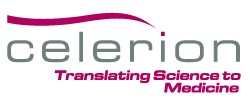During clinical development, new drug candidates undergo a series of key studies aiming to establish optimal treatment doses and dosing regimens and to confirm drug efficacy. Accompanying these principle clinical trials, a variety of ancillary studies — often referred to as drug labeling or new drug application (NDA) enabling studies — need to be conducted to complete a drug’s filing dossier as a prerequisite for initiating the drug approval process. Common examples of drug labeling studies are: food effect studies, drug-drug interaction (DDI) studies, cardiac safety (QTc assessment or thorough QT [TQT]) studies, absorption-distribution-metabolism-excretion (ADME) studies, ethnic bridging studies and studies in special populations such as renally or hepatically impaired patients, elderly and postmenopausal subjects.
In practice, some of the abovementioned studies are integrated in the early stage of clinical development in healthy volunteers. For instance, food effect can be added to first-in-human, single and multiple ascending dose studies as a separate treatment arm. Robust QTc assessment can also be incorporated into multiple ascending dose studies to assess a drug’s proarrhythmic potential, while TQT studies are typically stand-alone trials that may be initiated at a later stage.
Although the scenarios for embedding labeling studies in the clinical development program may depend on prioritization, budgets and sheer practicalities, drug development usually benefits from setting up a well-balanced strategy early on during drug development.
Over the past three years, the Food and Drug Administration (FDA) and/or European Medicines Agency (EMA) have issued either final guidance or updated guidelines for food effect, DDI, ADME, TQT and renal impairment studies. This webinar will summarize these key guidance documents and highlight recent changes drug developers need to know.
From the perspective of current regulatory guidance, this webinar will consider the setup and conduct of selected labeling studies, strategic aspects and best practices.
Join this webinar to gain insights into the latest guidelines from the FDA and EMA on drug labeling in clinical pharmacology.
Speakers

Aernout van Haarst, PhD, Director of Scientific Affairs, Celerion
Aernout van Haarst is a subject matter expert in Celerion’s respiratory research team and works closely with external experts in the field of pulmonology to support the drug development programs of Celerion’s clients. Aernout joined Celerion in 2015 and has over 25 years of drug development experience at biotechnology companies and CROs. He received his PhD from the School of Medicine at Leiden University and is qualified as a Clinical Pharmacologist in The Netherlands.

Sabina Paglialunga, PhD, Director of Scientific Affairs, Celerion
Sabina Paglialunga serves as a subject matter expert in metabolic diseases such as non-alcoholic steatohepatitis (NASH) and type 2 diabetes, and she has published extensively in these areas. She joined Celerion in 2015 and has held several roles with increasing responsibility. Sabina received her PhD in biochemistry from McGill University in Canada and her training also includes three postdoctoral fellowships.
Who Should Attend?
This webinar will appeal to professionals in the following fields:
- Clinical operations
- Clinical development
- Clinical pharmacology
- Pharmacokinetics
- Project Managers
- Site management and monitoring
- Site engagement leaders
- Clinical Scientists
- Clinical Pharmacists
- Regulatory affairs
What You Will Learn
Attendees will learn:
- How have recent updates in regulatory guidance affected drug-labeling studies?
- Which scenario for scheduling drug-labeling studies should they choose?
- What options do they have when designing drug-labeling studies?
Xtalks Partner
Celerion
Celerion, a global leader in early clinical research services offers a unique combination of medical expertise, clinical operations experience and scientific excellence that gives our clients the confidence to make fast, accurate decisions about their drug development path. For fifty years, Celerion has leveraged the latest operational concepts and technologies to execute safety/tolerability, pharmacokinetic and pharmacodynamics studies in highly controlled clinic environments. These include first-in-human dose escalation, drug-drug interaction, cardiac safety, bioequivalence and bioavailability, metabolism and excretion studies as well as pharmacokinetic evaluations in patients with impaired renal or hepatic function. Celerion offers feasibility, data management, biostatistics, clinical monitoring and bioanalytical services. Our founding mission is to help our clients get their drugs to market quickly, so that they touch the lives of our family, friends and people in need around the world. For more information, please visit www.celerion.com.
You Must Login To Register for this Free Webinar
Already have an account? LOGIN HERE. If you don’t have an account you need to create a free account.
Create Account





